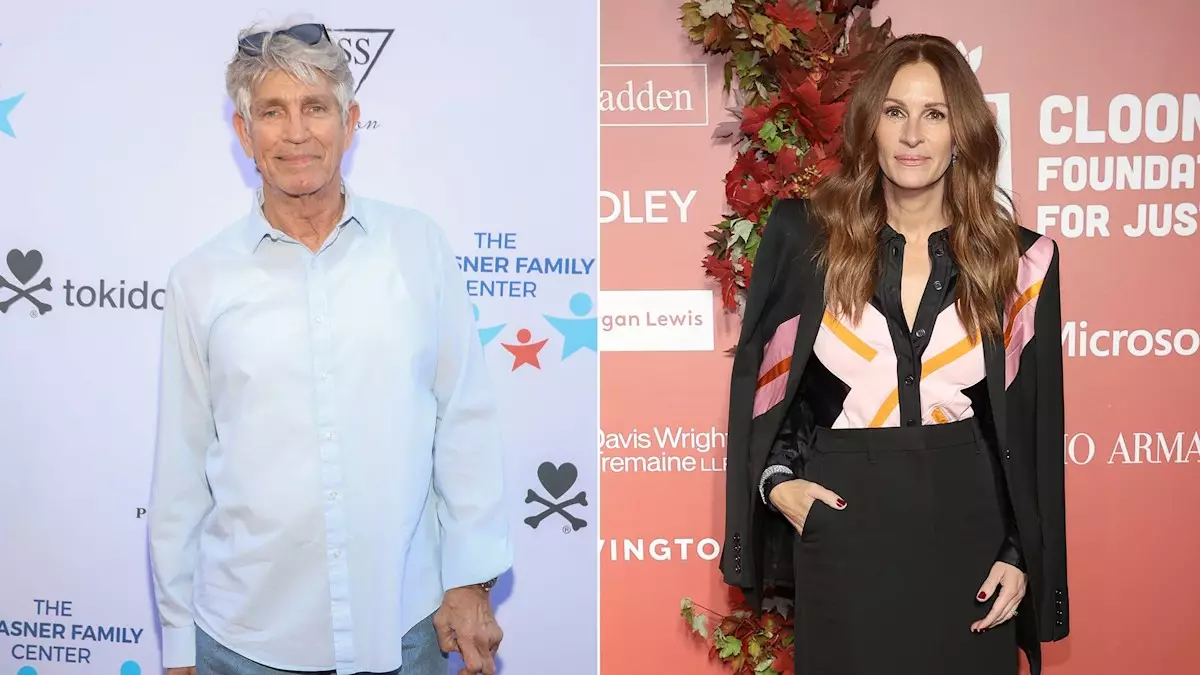In a remarkable shift from a tumultuous past, Eric Roberts has publicly apologized to his sister, Julia Roberts, reflecting on the missteps that led to their decade-long estrangement. Known primarily for his roles in films like “The Dark Knight,” Eric’s new memoir, *Runaway Train: Or, the Story of My Life So Far*, not only sheds light on his life and career but also on his relationship dynamics with his famous sister. The complications that arise from fame, family, and personal struggles all come into focus as Eric grapples with the consequences of his earlier comments that claimed undue credit for Julia’s success in Hollywood.
The actor candidly admits to having said on multiple occasions that if it weren’t for him, there wouldn’t be a Julia Roberts. This admission, now recognized as “asinine,” highlights a troubling pattern of thirst for acknowledgment that often accompanies siblings of famous figures. Eric’s desire for recognition led him to overshadow his sister’s talent while undermining the hard work she put into her career. Such statements appear egocentric, casting shadows over the achievements of his sister, who has rightfully earned her place in the industry apart from familial ties.
The Weight of Family History
Eric also addresses the strained family dynamics surrounding their mother, Betty Lou Bredemus. During Eric’s early career, he falsely claimed that their mother had passed away, a statement that he now views as “the great undoing” of his relationships with both Julia and their sister, Lisa. This misstep underscores harrowing implications of siblings being unaware of how their actions reverberate in familial relationships. Eric’s realization of the distress he caused Julia and Lisa, who were just children living with their mother, exhibits a maturity that comes with introspection and acknowledgment of past errors.
Family dynamics can be incredibly complex, particularly in the shadow of fame. The Roberts siblings struggled with their mother’s divorce from their father, which left emotional scars. Eric confesses to harboring resentment towards their mother and states that it impacted his ability to maintain healthy relationships with his sisters. This candid reflection reveals the necessity of understanding familial legacies, particularly the influences of parental separation on children as they grow into adulthood.
Despite these challenges, Eric asserts that he and Julia share a close bond today, albeit one marked by personal boundaries. His remark that “I just stay out of her hair with the press” reflects a newfound respect for Julia’s autonomy and the pressures of being in the limelight. This sentiment is crucial in a world where public personas often overshadow personal relationships.
The reconciliation between the Roberts siblings appears to have blossomed around 2004 when Julia welcomed twins into her family. The new role of a mother not only transformed Julia’s life but also opened a avenue for healing, allowing the siblings to reconnect on a deeper level. It indicates that sometimes new beginnings in life can serve as pivotal moments for old wounds to begin healing.
Eric Robert’s journey serves as a compelling reminder of the lessons learned through self-reflection and humility. Fame can distort perceptions, leading to a desire for recognition that can come at the expense of relationships. His eventual acknowledgment of his past shortcomings provides valuable insight on the importance of being considerate of others as one’s personal narrative unfolds.
Contrary to his past statements of taking ownership of Julia’s success, Eric’s thoughtful apology signifies an understanding that success is multifaceted. It requires not just talent but dedication and perseverance, traits that Julia has personified throughout her illustrious career. Acknowledging and apologizing for past errors is a testament to personal growth, offering hope for others navigating family complexities, especially within the shimmering glare of fame.
Eric Roberts’ apology to Julia is emblematic of the intricacies of sibling relationships shaped by history, ego, and the desire for personal growth. As both actors navigate the challenges of life and the public eye, their story reminds us all that reconciliation is possible, and personal growth often comes with learning from one’s past.

